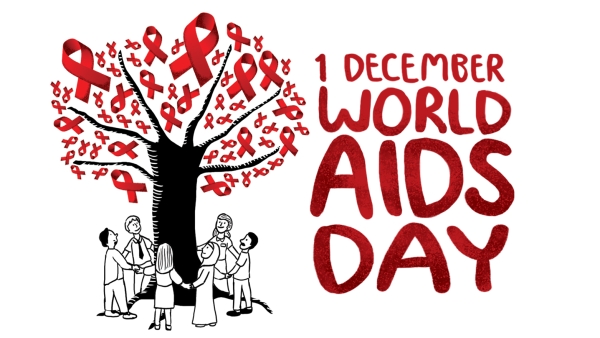World AIDS Day is held on 1 December each year and is an opportunity for people worldwide to unite in the fight against HIV, show their support for people living with HIV and to commemorate people who have died. World AIDS Day was the first ever global health day and the first one was held in 1988. Since then, this day is celebrated in almost every country in the world.
There were 36.7 million people living with HIV at the end of 2016. In mid-2017, 20.9 million people living with HIV were receiving antiretroviral therapy globally. Global ART coverage for pregnant and breastfeeding women living with HIV is high at 76%. More than 35 million people have died from the virus, making it one of the most destructive pandemics in history.
In Macedonia the HIV rate is at the lowest level, and the most affected are these risk groups – injecting drug users, sex workers, and men who have sex with men. According to the records at the Institute of Public Health, for 30 years (1987 to 2017), there were 338 registered cases of HIV, of which 83 are already passed away and 255 are living with HIV and receiving antiretroviral drugs.
Today, many scientific advances have been made in HIV treatment, there are laws to protect people living with HIV. But despite this, people do not know the facts about how to protect themselves and others from HIV, and stigma and discrimination remain a reality for many people living with HIV. World AIDS Day is important as it reminds the public and Government that HIV has not gone away – there is still a vital need to raise money, increase awareness, fight prejudice and improve education.
World AIDS Day is an opportunity for you to learn the facts about HIV, how HIV is transmitted, how it can be prevented, and the reality of living with HIV today. Providing the right health services to those who need them, in itself, isn’t enough. If we are to achieve equity, to reach universal health coverage and to ensure the right to health for all, we need to work beyond the health system. The broader policy and social environment continues to play a critical role in shaping HIV epidemics and facilitating or hindering effective responses.
In Macedonia, every year there are organized public events to mark World AIDS Day in order to raise awareness among general population. People who are living with HIV, if timely diagnosed and regularly treated, have a long and normal life.
Take care of your own health and the health of others!


